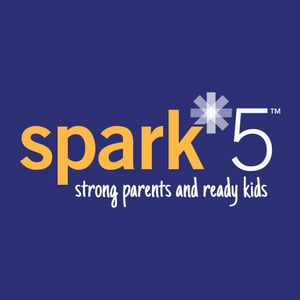 During spark*5’s (strong parents and ready kids by age five) development, stakeholders used Economic Mobility Pathway’s (EMPath) Bridge to Self-Sufficiency as a model to build navigation hubs that are part of the initiative’s core components. This past spring, the spark*5 network had the opportunity to join EMPath’s Economic Mobility Exchange and access the rich materials and resources from their Economic Mobility Mentoring work.
During spark*5’s (strong parents and ready kids by age five) development, stakeholders used Economic Mobility Pathway’s (EMPath) Bridge to Self-Sufficiency as a model to build navigation hubs that are part of the initiative’s core components. This past spring, the spark*5 network had the opportunity to join EMPath’s Economic Mobility Exchange and access the rich materials and resources from their Economic Mobility Mentoring work.
The Economic Mobility Exchange is “a membership-based network of organizations learning about the Mobility Mentoring model together. The network captures and shares back innovative ways in which members evolve and adapt the model and tools, sharing best practices to most efficiently support people in their journey to full economic independence.”
In addition to resources through this partnership, members of the spark*5 network attended EMPath training in Boston, MA. Meredith Hershner, UWECI Community Building team, and Ashley Turner, spark*5 Connector with HACAP, attended the conference May 15–18.

During the first two days, Meredith and Ashley learned about the essential elements of Mobility Mentoring including coaching, the Bridge to Self-sufficiency, goal setting and outcome measurements, and incentives. On the third day, they participated in the first Implementation Roundtable discussion, which focused on how organizations can implement Mobility Mentoring within their own work.

What is Mobility Mentoring? “The professional practice of partnering with clients so that, over time, they may acquire the resources, skills, and sustained behavior changes necessary to attain and preserve their economic independence.”
The information they gained through the EMPath training will be incredibly valuable to the spark*5 network going forward. Ashley, who works directly with spark*5 families, felt this was a wonderful way to formalize our current practices in supporting families. The way EMPath presented the information, with emphasis on building resiliency within families, aligns with core components and guiding principles of spark*5 and this training added practices into that work.
By bringing back these essential elements, the continued learning and growth opportunities available through the Economic Mobility Exchange will offer the possibility to learn from other organizations, as well.
To learn about the spark*5 initiative, visit spark5.org. More updates coming soon!

